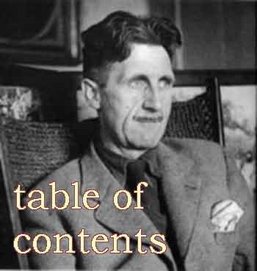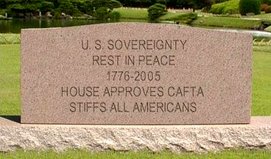June 23, 2004, 10:43 a.m.The Patriot
Norman Podhoretz’s Love Affair.
By Seth Lipsky
EDITOR'S NOTE: This review of Norman Podhoretz's My Love Affair with America: The Cautionary Tale of a Cheerful Conservative appeared in the July 31, 2000, issue of National Review.
When Norman Podhoretz stepped down as editor of Commentary, the Forward, which I was then editing, published a Podhoretz Sampler. To compile it we read all of the pieces he had written for the magazine he edited for 35 years. It would have been possible to garner a memorable paragraph from nearly every one of them, though limitations on space permitted us to quote only two dozen. We wrote a brief italic introduction that described the sampler as a "salute to a giant of Jewish journalism." This point stopped a few of the editors momentarily, and we worked the phrasing around a bit. Maybe, we thought, we should call him a giant of American journalism. Out of deference to the Forward's beat, we stuck with Jewish, though Podhoretz is, of course, a giant of both.
This fact is underscored by his slim memoir, My Love Affair with America: The Cautionary Tale of a Cheerful Conservative. He opens with a little disquisition on patriotism, quoting Bertrand Russell as saying, "Love of Eng land is very nearly the strongest emotion I possess," and explaining that he, Podhoretz, feels much the same way about America. He says he only plumbed the depths of that feeling in the course of being driven, almost against his will, to defend the country against its ideological enemies on the Left. He then sketches the arc of his ardor, starting in elementary school in Brooklyn, on through his years at Cambridge and his service in the army, and then the editorship of Commentary. This encompassed ten years during which he fell in with the very left-wing critics against whom he would appear in intellectual arms during the climactic years of the struggle against Soviet Communism.
Many have followed the trajectory Podhoretz took from Left to Right. Millions of Jews, immigrants themselves or, like Podhoretz, the children of immigrants, have found that America-its freedom and opportunities and decency-awakened in them an affection that is almost religious in its fervor. I have been struck by the number of Jewish intellectuals who are infatuated, even obsessed, with the American Founders and their written campaign on behalf of American constitutionalism: Podhoretz, one can see here, is among them. What is different about him is the fidelity with which he has maintained a focus of Jewish particularity throughout his career, a record that has inspired a lot of us who have followed, to one degree or another, in his wake: this, and the shrewdness with which he has been able to discern the Jewish interest through the fog of the wars of ideas.
Podhoretz obviously came from great stock. Among the many diverting asides here is one about his mother's reaction to the discovery that the other winner of Columbia's Kellett scholarship the year Podhoretz gained it was a lad named Emmanuel Chill. Mrs. Pod horetz correctly deduced that it must be the son of Ida Chiel, who came to America with Mrs. Podhoretz and, during the crossing, taught her how to greet in English her father whom she would meet when they landed. The women had drifted apart and lived as members of the working class. "Yet," Podhoretz marvels, "America had found two of their sons there, plucked them up, and deposited them into a great university in which Jews were still only grudgingly welcomed."
Podhoretz's early travels abroad quickened his feelings for America. A visit to Israel sealed the deal. "Six weeks there finished what a year in England had inaugurated," Podhoretz writes. "No doubt the Jewish people had been in exile, but not this Jew, not me. My true homeland was America, and the Jewish homeland was, so far as I was concerned, a foreign country." While he was happy that Israel had been established as a sovereign state to which persecuted Jews could flee, he could not imagine such a thing happening to him or the Jews of America. But "if, God forbid, it ever did and I was forced to settle in Israel, I would almost certainly feel that I was now in exile." These sentiments shocked and offended his Israeli friends, none of whom, he observes, could have imagined "in their worst nightmares" that their "post-Zionist" children and grandchildren would one day question "the very legitimacy of Israel as a Jewish state."
The issue of carrying criticism of one's country too far is where Podhoretz parted company with the Left in what, for me, has always been the most mystifying chapter of his life: Vietnam. Podhoretz was one of the earliest opponents of American intervention, on the ground that it was, in Gen. Maxwell Taylor's phrase, "the wrong war in the wrong place at the wrong time." This view was sharply different from that of more radical opponents of the war. "In that alternative view," Podhoretz writes, "the American intervention in Vietnam was not a mistaken extension to Asia of the strategy of containment that had worked so well in holding the Soviet Union back in Europe; it was a criminal act of imperialism aimed at suppressing the legitimate national aspirations of a downtrodden dark-skinned people."
I have come to view America's expedition in Vietnam as having been directed precisely to the right place (where the Communists attacked) and at the right time (when they were attacking). Nonetheless, I found Pod horetz's reprise of this passage in his career not only illuminating but satisfying. His patriotism was sorely tested. But his love of America remained "strong enough to withstand more than a dozen years of deep disapproval over its ever-escalating involvement in a war that I thought it should never have entered." It also survived a close association with people who did not hesitate to compare America to Nazi Germany. The first time Podhoretz heard such a comparison, over dinner with a good friend, he stormed out of the restaurant, shouting that if he himself felt that way, he'd consider emigration the only honorable course. His friend "responded with a smirk and cut himself another slice of steak."
The tendency to liken America to the Nazis has shown itself not only on the Left, but occasionally also on the Right, and Podhoretz is vigilant there as well. Hence the "cautionary" aspect of his title. He recounts one notorious such incident, when pro-life advocates, furious over judicial imperialism, asked in the conservative magazine First Things whether revolution was "morally justified" by these abuses. Podhoretz responded by lighting out after a number of his friends on the Right-demonstrating why so many of us have come to rely on his judgment, his shrewdly drawn distinctions, and his patriotism. He gives voice to this sentiment in a moving closing he calls an "American-style dayyenu" — inspired by the Hebrew hymn, recited at Passover, of thanks for God's blessings. Here Podhoretz lists the many blessings America gave him, any one of which would have been enough.
BEEBEE'S COMMENT: I am posting this because this is again a author that is featured on Redstate.com. You see, I am glad that Podheretz is proud of his many blessing from America. But again, it is a Jewish writer that is complaining per the article on Redstate that Islam is not described in this particular writing defining Jihad, etc. See Redstate.com for followup. I do not know how to set up trackbacks, and do not care to take the time to learn. You see, the gentiles have been erased from history in the United States. Our opinions do not matter, as the far right wing party of the Republican Party is now defined by clear Jewish thought and writing. Oh most see that the neocons are the ones leading us to war, but most just say what in the heck is a neocon and then go on about their daily lives. I have been trying to point out to Erick, et al that our Middle East Wars are related to oil and Jewish interests. But that is taboo to the majority that walk around with invisible masking tape on their mouths. I will write and think what I wish, and will live out the freedom that patriots gave to me! That will soon be dead in the United States, when the First Amendment is eliminated. Think it can't happen?
Subscribe to:
Post Comments (Atom)









No comments:
Post a Comment